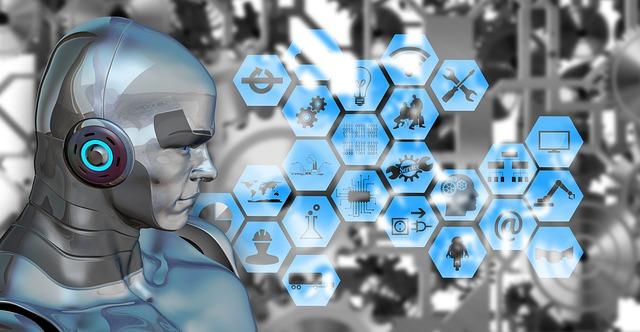Market Research Updates
This Blog is Related to the daily updates about market research and their forecast, Upcoming trends, Future Market Scope and Key Players Analysis information in brief information by Report.
Industrial Robots Market to Record CAGR of 17.2% Rise in Growth by 2026 | FMI Research Report

Future Market Insights (FMI) has projected the global industrial robots market to ride on a high double-digit CAGR over the forecast period, 2017 to 2026. Over 8,700 Mn units of industrial robots are estimated to be sold across the globe by 2026-end.
Simple Autonomous Robots Concept Gaining Widespread Attraction Globally
Introduction of robots integrated with the sense of vision and touch is likely to positively impact the market expansion, as these robots possess the ability of enhancing efficiency and speed of delivery systems. The simple autonomous robots concept, as part of greater group, is gaining a widespread attraction globally. Industries implementing robotic technologies reap significant financial benefits on the back of reduced overheads, waste reduction, and increased productivity & flexibility. With advancements in artificial intelligence (AI), development of sophisticated tools and self-programmable robots will witness increased momentum in the foreseeable future.
Today’s industrial robots have become more flexible in the range of applications, with easy positioning and friendlier interfaces. Leading manufacturers of industrial robots are focusing on manufacturing robots that are simpler to configure and program, and easier in integrating with technologies, which create incredible functioning. This has led toward the emergence of collaborative robots or “cobots”. Applications of collaborative robots for working with humans are increasing in bandwidth, with soaring adoption of various sensing technologies.
Popularity of industrial robots is increasing, however barriers exist for adoption in low-volume production, albeit rate of industrial robots deployment is rising in small- and medium-scale industries. Industrial robots are designed based on the requirements of application, and therefore incur the inevitable process of modification or reconfiguration with every change in application. Adoption of industrial robots in low-volume production is hindered by the fact that cost of reinstallation and reconfiguration is considerably high for such kind of production process.
Download Sample Copy@ https://www.futuremarketinsights.com/reports/sample/rep-gb-948
Key Research Findings from FMI’s Report on Industrial Robots Market
- Semi-automatic technology-based industrial robots will witness highest sales, in terms of volume, and are projected to expand at a CAGR of above 15% through 2026. Manual robots will continue to be least lucrative in the market.
- Owing to their safety, cost-effectiveness, and job efficiency, number of robot deployments has gained an upsurge in the automotive industry. Volume sales of industrial robots for automotive end use will remain relatively higher than all the other end use segments included in the report.
- Demand for industrial robots for end use in healthcare, electrical & electronics and construction sectors will also remain high, in term if volume during the forecast period. In addition, sales of industrial robots for end use in healthcare will exhibit the fastest expansion through 2026.
- Requirement for handling heavy components in harsh working environments has led toward increased adoption of industrial robots for material handling processes. Industrial robots deployed in material handling are able to handle heavy payloads, along with being useful in specific production lines that include huge and heavy machine parts. Material handling application of industrial robots will account for the largest volume share of the market by 2026-end.
- Parallel robots, Cartesian robots and articulated robots are expected to remain top-selling products in the market, in terms of volume. However, sales of articulated robots will register a relatively lower CAGR than that of parallel and Cartesian robots through 2026. Cylindrical robots will reflect the fastest expansion in sales in the market through 2026.
- Asia-Pacific excluding Japan and Europe will continue to be dominant in the global industrial robots market, in terms of volume. In contrast, adoption of industrial robots in Middle East & Africa and Latin America will remain sluggish during 2017 to 2026.
Ask the Analyst@ https://www.futuremarketinsights.com/ask-the-analyst/rep-gb-948
Prominent Industry Players are leveraging their Market Expertise for Diversifying into Service Robots
As the market for industrial robots is capital-intensive, new market players face a lot of entry barriers. New players are likely to face challenges associated with insufficient venture capital required for product diversification and differentiation, thereby resulting into a rise in focus on certain application areas.
Prominent industrial players, on the other hand, are levering their market expertise for diversifying into service robotics. However these industries are compelled to provide cost-effective solutions, as numerous small-sized businesses are offering industrial robots at competitive prices. FMI’s report has listed key players influencing expansion of the global industrial robots market, which include ABB Limited, Fanuc Corporation, KUKA AG, YASKAWA Electric Corporation, Mitsubishi Electric Corporation, Krones AG, Brenton, LLC, Kawasaki Heavy Industries, and Denso Corporation.
